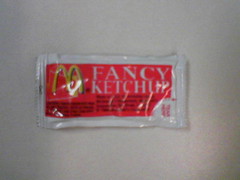Wendy’s CEO Jack Schuessler published an article in the Wall Street Journal on lessons his company learned from the false claim of a fingertip being found in their chili. Mr. Schuessler pointed out the hoax led to a 50% drop in revenue in San Jose (where the claim was made). He also wrote about how it affected workers.
There was only one part of the article I found disingenuous.
It might have been expedient to pay off the accuser in an attempt to end the media onslaught–after all, that is the preferred form of capitulation in this trial-lawyer-driven age; but we never considered this option.
Mr Shuessler also compliments his customers who “appreciate the fact that we protected our brand and didn’t simply try to “make it go away.”
In reality, Wendy’s did not have the option to buy their way out of it. Mr. Schuessler even explained why earlier in the article. “Within an hour [of the claim being made] the story was on TV news, and soon after, Wendy’s was fodder for Jay Leno.”
The news coverage was so massive that Wendy’s had no choice but to fight it. If Wendy’s had tried to pay off the woman making the accusation, the public would have taken that as an admission of guilt. The 50% drop in the San Jose area would have been nothing compared to the empty stores they would have had across the country.
Wendy’s did do the right thing by not caving, but they really had no choice. The woman committing the fraud underestimated the uproar her claim would cause. The scope of the news coverage worked against her. This became clear when she dropped her planned lawsuit.
It was too late for her though; the damage was already done. Wendy’s national reputation was hurt. At that point, the fight was not just to avoid a million dollar lawsuit. They were fighting for the life of their business. It wasn’t about a million dollars. It was about the three billion dollars in revenue they earn each year.
Yes, Wendy’s did the right thing in this case. I still wonder how many other lawsuits they settle instead of investigating.


